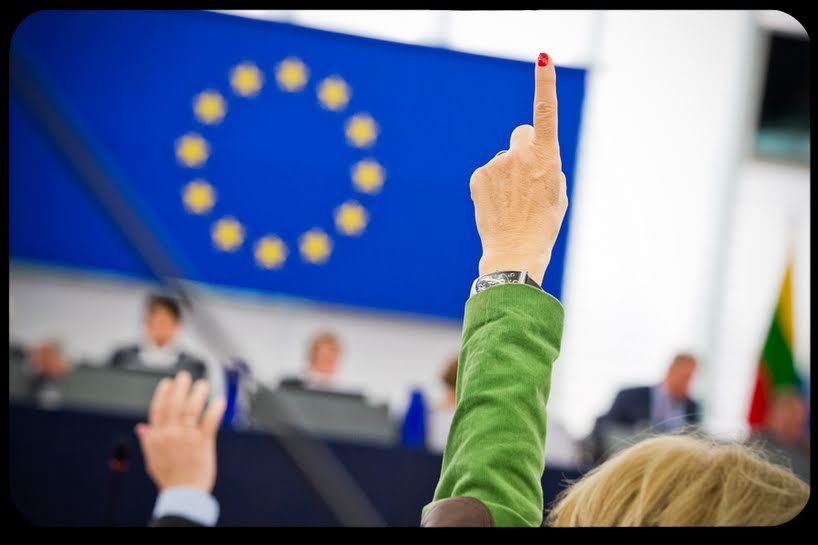
This election poses a heavy challenge as regards the common good of Europe, both from the ethical and economic point of view. But the complexity of the European system, its apparent remoteness from citizens’ concerns, not to mention the evils that are rightly or wrongly attributed to European institutions, allow us to anticipate a new record of abstentions.
Catholics are often the first to criticize Europe as if it were responsible for all evils, not only economic ills, but also problems in the moral and family area. The fact is that it is more than ever in Strasbourg and Brussels that the future of the “old continent” is decided. We must therefore pay close attention to what is going on and ask how to act positively for the founding project of the “fathers of Europe” to get back on track rather than contribute to its derailment.
Faced with “the Apostasy of Europe”
The hierarchy of the Catholic Church not only hears and shares many of the criticisms of Europe, but it is she who has issued the most severe statement by denouncing, in Pope Benedict XVI’s words, its “apostasy.” This statement was made during a conference organized by COMECE on March 24, 2007 in Rome: “Is it not surprising,” the Pope asked, “that today’s Europe, while aspiring to be regarded as a community of values, seems ever more often to deny the very existence of universal and absolute values? Does not this unique form of ‘apostasy’ from itself, even more than its apostasy from God, lead Europe to doubt its own identity? And so the opinion prevails that an ‘evaluation of the benefits’ is the only way to moral discernment and that the common good is synonymous with compromise. In reality, if compromise can constitute a legitimate balance between different particular interests, it becomes a common evil whenever it involves agreements that dishonour human nature.”
When Europe denies the existence of “universal and absolute values,” it falls into utilitarianism, materialism, and repudiates itself. How can we deplore the rise of intolerance, racism, and extreme nationalism if we turn our back on the very existence of human nature, and therefore the existence of an objective good and the very possibility of brotherhood?
The Church Continues to Support European Integration
The Church is clearly aware of the presence of evil but never loses hope. That is why she continues to defend the European construction, not wanting the baby to be thrown out with the bathwater. The baby, in this case, is this “Christian brotherhood” that one of the founding fathers of Europe, Robert Schuman, wanted to recover and bring back to life in the aftermath of World War II, which had torn it to shreds. This brotherhood is rooted in these values enumerated by John Paul II: “…the affirmation of the transcendent dignity of the human person, the value of reason, freedom, democracy, the constitutional state and the distinction between political life and religion” (John Paul II, Post Synodal Apostolic Exhortation Ecclesia in Europa , June 28, 2003, No. 109). The fact is that the erosion and dilution of these values directly threatens brotherhood not only between peoples, but also within each nation.
It is not a matter of waving our Christian roots like a red rag under the noses of atheists, but of recalling that Western culture, with its dual Greco-Roman and Judeo-Christian heritage, has developed a anthropology with a universal vocation. Indeed, this view of man has become, to a greater or lesser degree, a benchmark for the world. The current mobilization to save the Nigerian girls abducted by Boko Haram, the global outrage that this barbaric kidnapping has caused, shows that some Christian values such as respect for the human person, for women, for children, and for freedom still prevail in most of the world – to the chagrin precisely of the Islamists for whom “Western education is a sin” (this is the approximate meaning of “boko haram” in the Hausa language).

